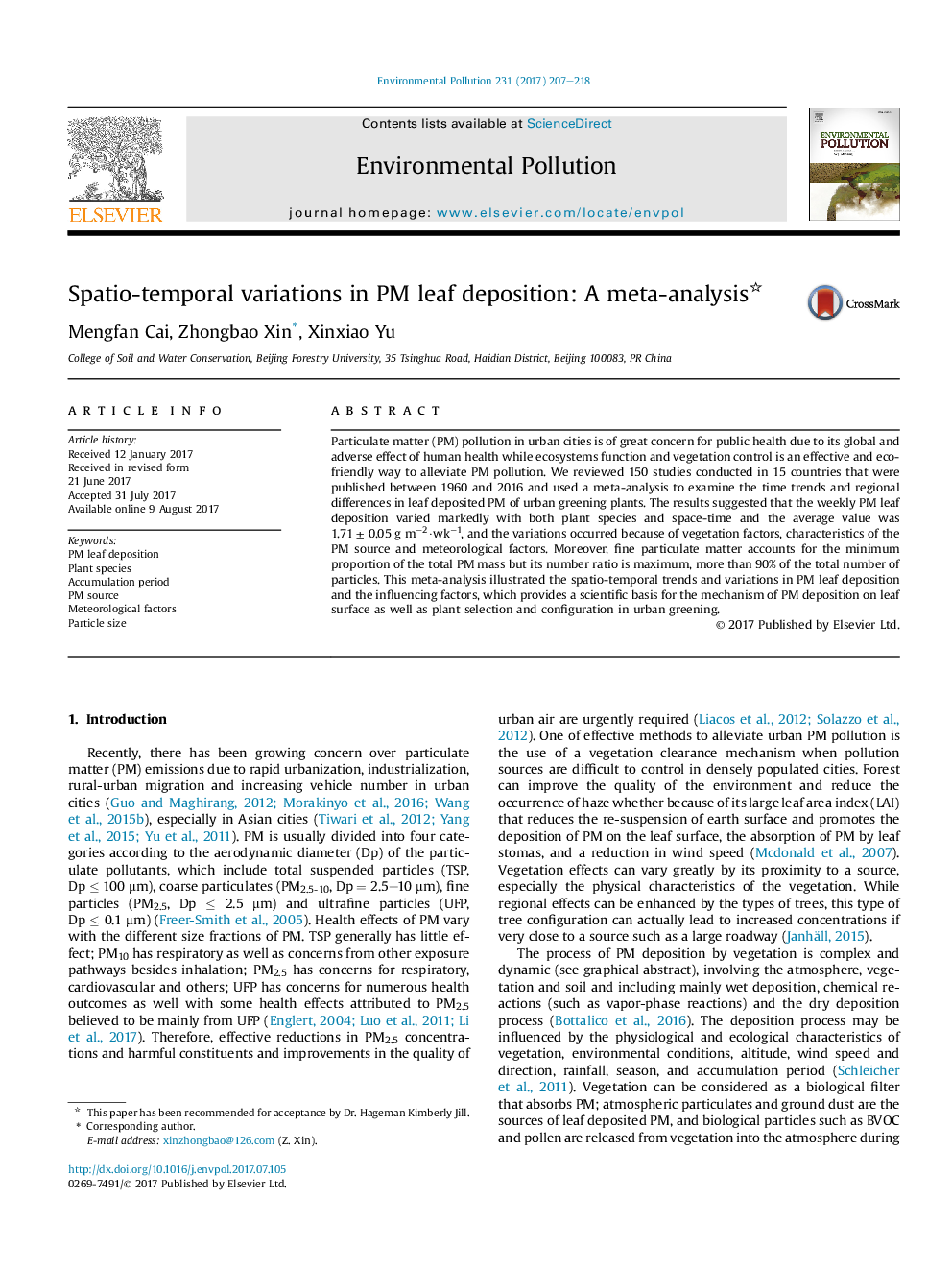| Article ID | Journal | Published Year | Pages | File Type |
|---|---|---|---|---|
| 5748538 | Environmental Pollution | 2017 | 12 Pages |
â¢The weekly leaf deposited PM averaged 1.71 ± 0.05 g mâ2·wkâ1.â¢The leaf deposited PM was negatively related to species richness.â¢The leaf deposited PM reached dynamic equilibrium in the 10th day.
Particulate matter (PM) pollution in urban cities is of great concern for public health due to its global and adverse effect of human health while ecosystems function and vegetation control is an effective and eco-friendly way to alleviate PM pollution. We reviewed 150 studies conducted in 15 countries that were published between 1960 and 2016 and used a meta-analysis to examine the time trends and regional differences in leaf deposited PM of urban greening plants. The results suggested that the weekly PM leaf deposition varied markedly with both plant species and space-time and the average value was 1.71 ± 0.05 g mâ2·wkâ1, and the variations occurred because of vegetation factors, characteristics of the PM source and meteorological factors. Moreover, fine particulate matter accounts for the minimum proportion of the total PM mass but its number ratio is maximum, more than 90% of the total number of particles. This meta-analysis illustrated the spatio-temporal trends and variations in PM leaf deposition and the influencing factors, which provides a scientific basis for the mechanism of PM deposition on leaf surface as well as plant selection and configuration in urban greening.
Graphical abstractDownload high-res image (318KB)Download full-size image
